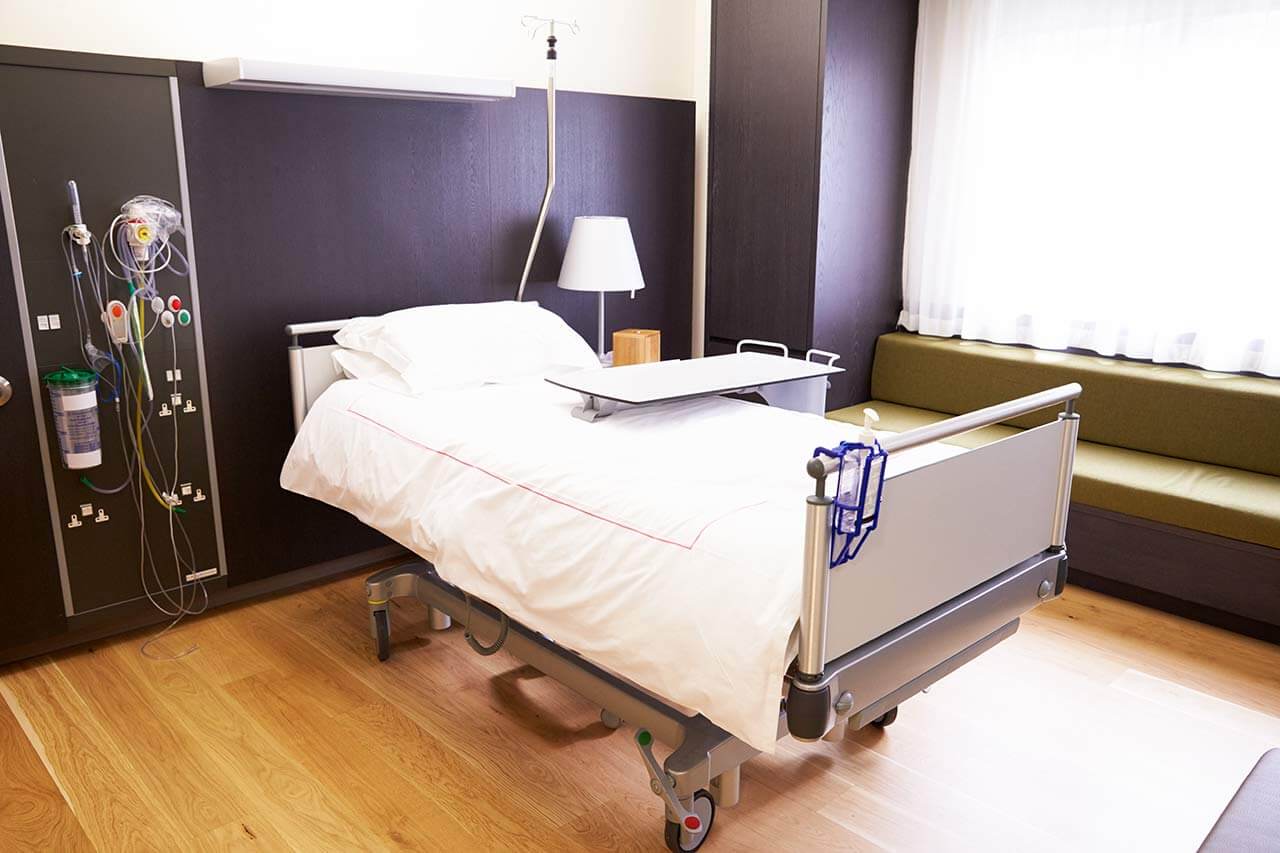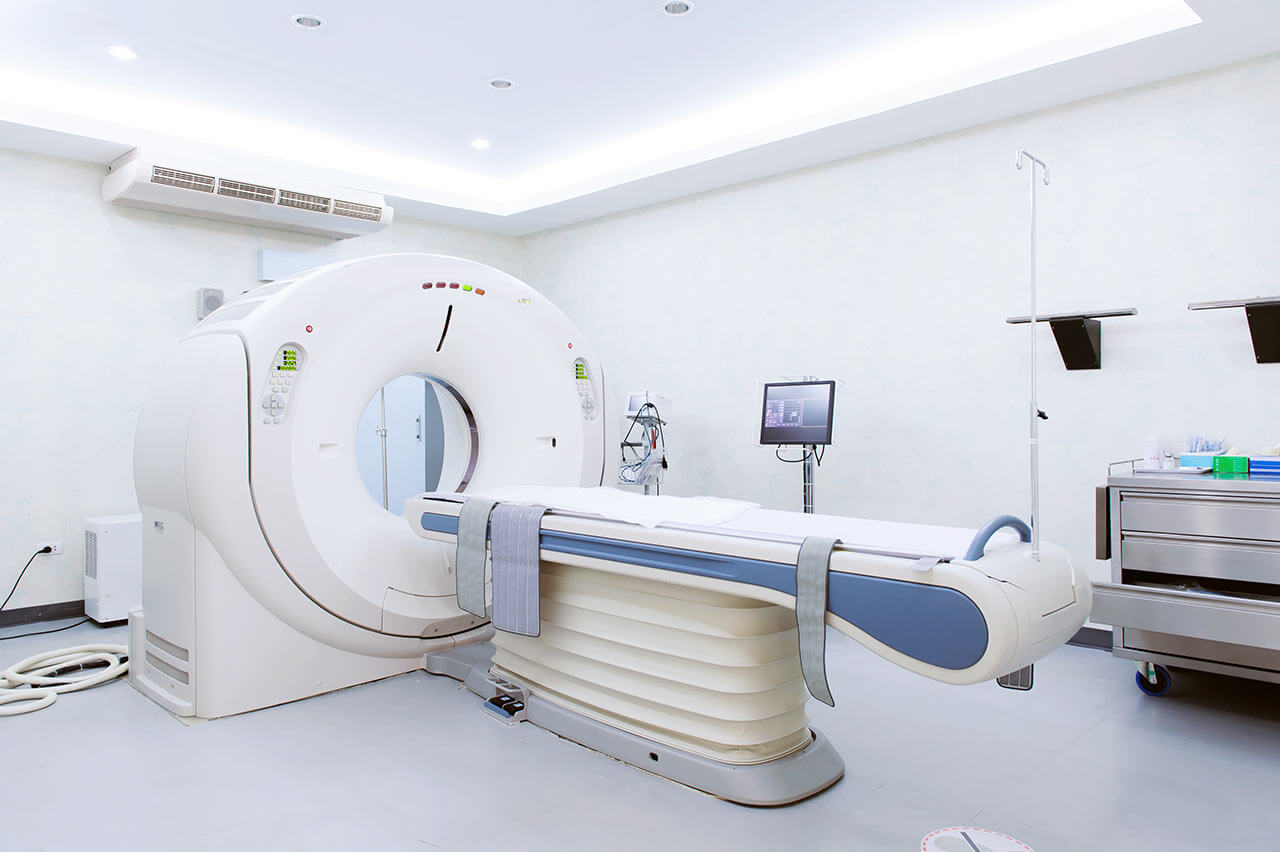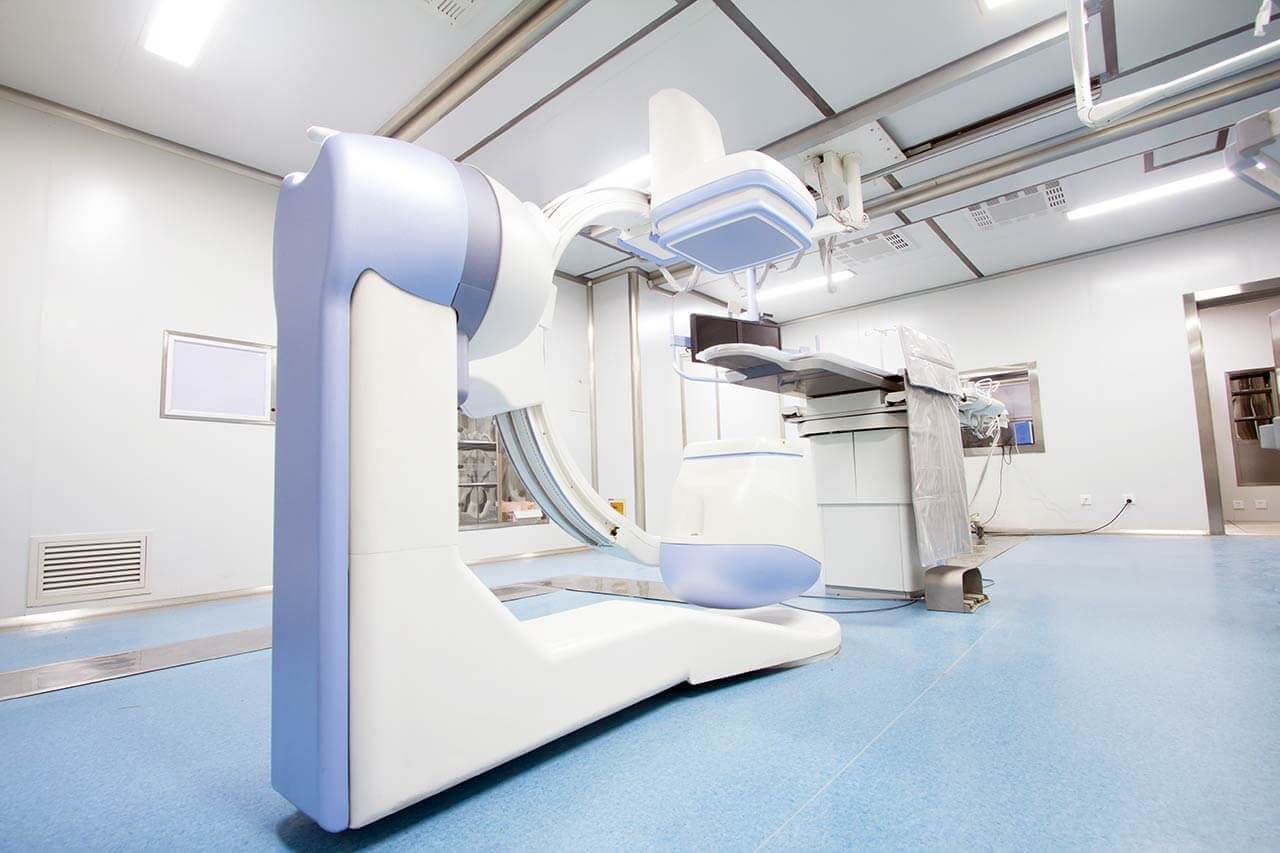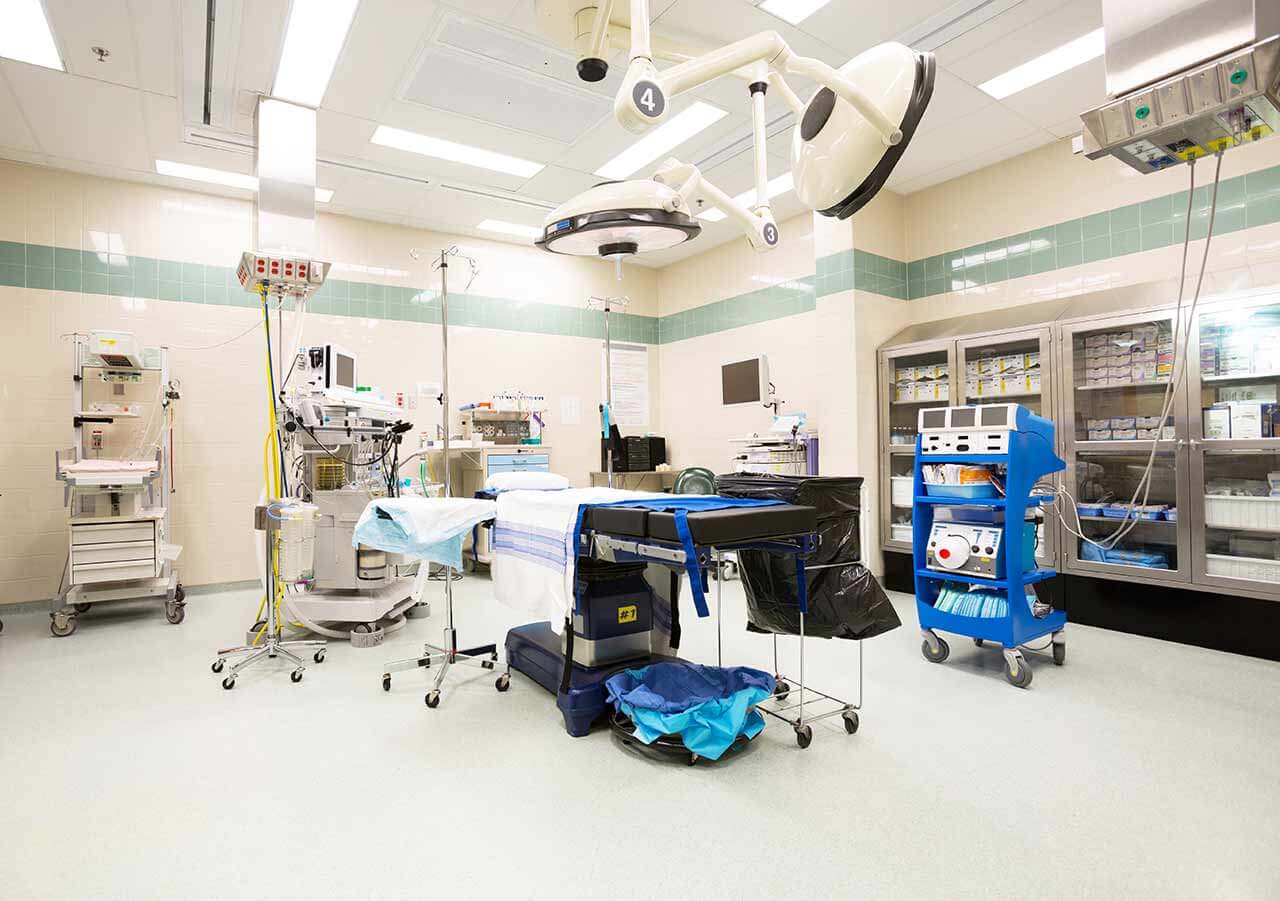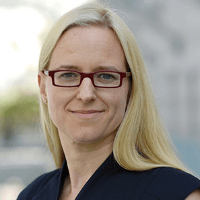
The program includes:
- Initial presentation in the clinic
- clinical history taking
- review of medical records
- physical examination
- laboratory tests:
- complete blood count
- general urine analysis
- biochemical blood test
- inflammation markers (CRP, ESR)
- blood coagulation analysis (aPTT, PT, INR)
- neurological examination
- functional X-ray of the head and neck
- electrophysiology study (if indicated clinically):
- ENMG (electroneuromyography)
- EEG (electroencephalography)
- SEPs (somatosensory evoked potentials)
- VEPs (visually evoked potentials)
- BAEP tests (brainstem auditory evoked potentials)
- CT/MRI scan of the head and neck
(if indicated clinically, additional cost is 650/1200€) - nursing services
- consultation of related specialists
- treatment by chief physician and all leading experts
- explanation of individual treatment plan
Required documents
- Medical records
Service
You may also book:
 BookingHealth Price from:
BookingHealth Price from:
About the department
The Department of Pediatric Neurology and Epileptology at the Charite University Hospital Berlin offers all modern diagnostic capabilities and effective methods of conservative therapy for young patients with diseases of the nervous system. Children aged 0 to 18 can receive treatment here. The department has special expertise in the treatment of neuromuscular diseases and spina bifida. The medical facility also provides effective therapy for epilepsy, developmental disorders, movement disorders, phakomatoses, chronic headaches, and traumatic brain injuries. The department practices an interdisciplinary approach to treatment, involving neurologists, neurosurgeons, orthopedists, pediatricians, psychologists, physiotherapists, speech therapists, and occupational therapists in the therapeutic process. The department is part of the Berlin Neuromuscular Disease Center, whose successful clinical practice is certified according to the standards of the German Society for the Treatment of Muscle Diseases (DGM). The department also maintains close cooperation with the Working Group of the Association of Spina Bifida and Hydrocephalus (ASBH), which allows it to provide high-quality care using the latest techniques for children with these conditions. The medical facility has a reliable quality control system, which has earned the department a high reputation among pediatric neurology clinics in the German healthcare system. The department is headed by Prof. Dr. med. Angela Kaindl.
One of the primary areas of specialization in the department is the treatment of neuromuscular diseases – the medical facility is certified as a specialized center by the German Society for the Treatment of Muscle Diseases (DGM). Neurologists provide comprehensive medical care for children with spinal muscular atrophy, congenital and acquired neuropathies, myasthenia gravis, including congenital myasthenic syndromes, muscular dystrophy, myotonic dystrophy, inflammatory and metabolic myopathies. This group of diseases causes muscle hypotonia, muscle weakness, delayed motor development, increased levels of creatine kinase in the blood, muscle pain, and sensory disturbances. Complete recovery from these conditions is impossible, so therapy aims to control the course of the disease, alleviate symptoms, and slow its progression. The department's specialists pay special attention to providing each patient with comprehensive medical care – only such an approach can ensure a high quality of life for the child.
The team of pediatric neurologists in the department has a special clinical interest in the treatment of epilepsy – one of the most common neurological disorders in childhood. Young patients with suspected epilepsy are seen in a specialized outpatient clinic, whose work has been recognized with a quality certificate from the German Society for Epileptology (DGfE). Diagnostic rooms for classical EEG, sleep-deprived electroencephalography, and 24-hour video-EEG monitoring are available here. The medical facility cooperates with the Department of Neuroradiology at the Charite University Hospital Berlin, so diagnostic imaging using MRI, CT, PET, or SPECT can also be performed if necessary. If the diagnosis is confirmed, specialists develop an individual treatment plan based on antiepileptic medications. In many cases, a ketogenic diet – a special diet high in fat, moderate in protein, and minimal in carbohydrates – has a positive effect on the child's condition. The department's specialists also counsel young patients on vagus nerve stimulation and surgical treatment of epilepsy. Over years of clinical practice, a unique algorithm has been developed here for providing effective care to children with particularly complex and pharmacoresistant forms of epilepsy.
The department's specialists also provide a full range of services for children with movement disorders, paying special attention to the treatment of juvenile parkinsonism, chorea, dystonia, myoclonus, tremor, tic disorders, spasticity, and ataxia. The examination includes electroencephalography, electromyography, cerebrospinal fluid analysis, computed tomography, magnetic resonance imaging, and muscle biopsy. Based on comprehensive diagnostic data, an individual treatment course is developed for the child. The attending physician presents the therapy plan with detailed explanations during a personal consultation. Depending on the specific case, the child may receive symptomatic treatment, a special diet, botulinum therapy, physiotherapy, gene therapy, and interventional procedures – for example, deep brain stimulation.
The department's specialization includes:
- Diagnostics and treatment of neuromuscular diseases
- Diagnostics and treatment of spina bifida
- Diagnostics and treatment of autoimmune encephalitis
- Diagnostics and treatment of movement disorders
- Diagnostics and treatment of juvenile parkinsonism
- Diagnostics and treatment of chorea
- Diagnostics and treatment of dystonia
- Diagnostics and treatment of myoclonus
- Diagnostics and treatment of tremor
- Diagnostics and treatment of tic disorders
- Diagnostics and treatment of stereotypy
- Diagnostics and treatment of ataxia
- Diagnostics and treatment of spasticity
- Diagnostics and treatment of inflammatory diseases of the nervous system
- Diagnostics and treatment of inflammatory diseases of the brain and spinal cord
- Diagnostics and treatment of multiple sclerosis
- Diagnostics and treatment of acute disseminated encephalomyelitis
- Diagnostics and treatment of optic neuritis
- Diagnostics and treatment of neuromyelitis optica
- Diagnostics and treatment of acute transverse myelitis
- Diagnostics and treatment of autoimmune encephalitis
- Diagnostics and treatment of inflammatory diseases of peripheral nerves
- Diagnostics and treatment of Guillain-Barré syndrome
- Diagnostics and treatment of chronic inflammatory demyelinating polyneuropathy
- Diagnostics and treatment of inflammatory diseases of the brain and spinal cord
- Diagnostics and treatment of epilepsy
- Diagnostics and treatment of cerebral palsy
- Diagnostics and treatment of microcephaly
- Diagnostics and treatment of neuromuscular diseases
- Diagnostics and treatment of spinal muscular atrophy
- Diagnostics and treatment of congenital and acquired neuropathies
- Diagnostics and treatment of myasthenia gravis
- Diagnostics and treatment of dystrophies
- Diagnostics and treatment of myopathies
- Diagnostics and treatment of phakomatoses
- Diagnostics and treatment of neurofibromatosis type II
- Diagnostics and treatment of Sturge-Weber syndrome
- Diagnostics and treatment of von Hippel-Lindau disease
- Diagnostics and treatment of Louis-Bar syndrome
- Diagnostics and treatment of Bloch-Sulzberger syndrome
- Diagnostics and treatment of Parry-Romberg syndrome
- Diagnostics and treatment of Chediak-Higashi syndrome
- Diagnostics and treatment of Schimmelpenning-Feuerstein-Mims syndrome
- Diagnostics and treatment of Cowden disease
- Diagnostics and treatment of PHACE syndrome
- Diagnostics and treatment of traumatic brain injuries
- Diagnostics and treatment of chronic headaches
- Diagnostics and treatment of other diseases of the nervous system in children
The range of medical services provided by the department:
- Diagnostics
- Electroencephalography
- Electrophysiological studies
- Sonography
- Neuropsychological testing
- Genetic testing
- Muscle biopsy
- Imaging studies
- Magnetic resonance imaging
- Computed tomography
- Positron emission tomography
- Single-photon emission computed tomography
- Treatment
- Drug therapy
- Botulinum toxin therapy and baclofen therapy
- Physiotherapy
- Occupational therapy
- Speech therapy
- Other medical services
Curriculum vitae
- 1994 - 1996 Study of Medicine at the Free University of Berlin.
- 1996 - 2001 Study of Medicine at the Humboldt University of Berlin.
- 2000 USMLE (1 and 2 Step).
- 2001 State Examination.
Clinical Activities and Positions
- 2001 - 2003 Assistant Physician, University Hospital at the Technical University of Dresden.
- 2003 - 2006 Assistant Physician, Department of Pediatric Neurology, Charite University Hospital Berlin.
- 2006 Medical Specialist, Department of Pediatric Neurology, Charite University Hospital Berlin.
- 2009 - 2010 Senior Resident, Department of Pediatric Neurology, Charite University Hospital Berlin.
- 2010 - 2015 Senior Physician, Department of Pediatric Neurology, Charite University Hospital Berlin.
- Since 2015 Medical Director of the Social Pediatric Center (C33) at the Charite.
- Since 2017 Head of the Department of Pediatric Neurology, Charite University Hospital Berlin.
Academic Achievements and Positions
- 1998 - 2001 Doctoral student, Institute of Human Genetics, Humboldt University of Berlin, PhD defense (summa cum laude).
- 2001 - 2003 Postdoctoral studies, University Hospital at the Technical University of Dresden.
- 2003 - 2005 Postdoctoral studies, Department of Pediatric Neurology, University Hospital Charite.
- 2006 Head of the group of young specialists, the Department of Pediatric Neurology, University Hospital Charite.
- 2007 - 2009 Postdoctoral studies, INSERM U676, Paris.
- 2009 Habilitation and Venia Legendi, Pediatric and Adolescent Medicine.
- 2016 Visiting Professor, Charite University Hospital Berlin.
- Since 2009 Head of the Research Group, Institute of Cell Biology and Neurobiology.
- Since 2015 Head of the Social Pediatric Center, Charite (focus: disorders of the central nervous system (CNS)).
Photo of the doctor: (c) Charité – Universitätsmedizin Berlin
About hospital
According to the reputable Focus magazine, the Charite University Hospital Berlin ranks 1st among the best healthcare facilities in Germany!
The hospital is one of the largest and leading university medical complexes in Europe, and also consistently holds leading positions in the international medical arena. The Charite operates on the basis of the Faculty of Medicine of the Free University of Berlin and the Humboldt University of Berlin. Patients are offered modern diagnostics and treatment with the very latest methods, many of which were developed by professors and scientists of the medical complex. More than half of all German Nobel Prize winners in medicine and physiology, such as Emil von Behring, Robert Koch, and Paul Ehrlich, studied and worked at the Charite University Hospital Berlin. The medical complex includes more than 100 specialized departments and institutes, which helps to ensure that patients receive care in all existing medical specialties. The hospital has exceptional experience in treating complex clinical cases.
Each year, the hospital treats more than 137,800 inpatients and more than 787,700 outpatients. The hospital has a bed capacity of 3,293 beds. A huge medical team consisting of 5,670 scientists and doctors and more than 6,000 nurses work for the benefit of the patients. The main task of all specialists of the medical facility is to restore the patient's health or save his life in critical cases. The hospital has a friendly atmosphere where every patient feels care, respect and empathy.
The Charite University Hospital Berlin is generously funded by the German government, which is why it offers patients the latest generation of excellent equipment and comfortable infrastructure. The Charite medical complex is equipped with da Vinci robotic surgery systems, laser technologies, equipment for endovascular catheter-based interventions, neuronavigation devices, intraoperative monitoring systems, equipment for proton therapy available only in the most advanced medical centers in the world, and many other technologies. All these resources, combined with the experience and professional skills of the hospital's doctors, are the key to providing the most effective and safe treatment in accordance with the highest international medical standards.
The hospital is recognized with a huge number of quality certificates, including DIN EN ISO 9001:2015, certificates from the German Cancer Society (DKG), the German Society for General and Visceral Surgery (DGAV), the German Society for Thoracic Surgery (DGT), the German Hernia Society (DHG), and the ERAS Society.
The Charite University Hospital Berlin is a benchmark in the European healthcare system. Patients therefore receive impeccable medical service, quality care, and personalized service that puts the patient and their individual needs first.
Photo: (с) depositphotos
Accommodation in hospital
Patients rooms
The patients of the Charite University Hospital Berlin live in comfortable rooms made of modern design. Each room is equipped with an ensuite bathroom with a toilet and a shower. The standard room furnishing includes an automatically adjustable bed, a bedside table, a wardrobe for storing clothes, a table and chairs for receiving visitors, and a TV. If desired, Wi-Fi access can be provided. The hospital also offers enhanced-comfort rooms.
Meals and Menus
The patient and his accompanying person have a daily choice of three menus. If for any reason, you do not like the food, you will be offered an individual menu. Please inform the medical staff about your dietary preferences before the treatment.
Further details
Standard rooms include:
Religion
Religious services are available upon request.
Accompanying person
During the inpatient program, an accompanying person may stay with you in a patient room or at the hotel of your choice.
Hotel
During the outpatient program, you can live at a hotel of your choice. Managers will help you to choose the most suitable options.
The hospital offers a full range of laboratory tests (general, hormonal, tests for infections, antibodies, tumor markers, etc.), genetic tests, various modifications of ultrasound scans, CT scans, MRI and PET / CT, angiography, myelography, biopsy and other examinations. Treatment with medications, endoscopic and robotic operations, stereotaxic interventions is carried out here, modern types of radiation therapy are also used. The hospital offers patients all the necessary therapeutic techniques.
- Proton therapy
- CyberKnife treatment
- Hyperthermic intraperitoneal chemotherapy (HIPEC)
- PSMA therapy with Lutetium-177
- Joint replacement in adults and children
These are oncological diseases, benign neoplasms of the brain and spinal cord, heart valve defects, diabetes mellitus and its complications, joint diseases and other pathologies.
- Neurosurgery
- Oncology
- Plastic and reconstructive surgery
- Interventional radiology
- Proton therapy (Proton Therapy Center BerlinProtonen)
The medical team includes more than 4,225 highly qualified scientists and doctors.
